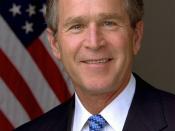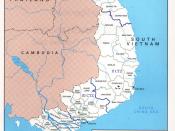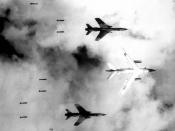Throughout the long history of the free world, there has always been at least one country that reigned supreme over all other nations. During the Age of Exploration Spain wielded this power. With its defeat came the supremacy of Great Britain. For centuries China ruled with an iron-fist over all of Asia, until Japan emerged as a rival for this power in the late eighteen-hundreds. The Soviet Union was one of the great superpowers, a position it shared with America until its downfall in the twentieth-century. And now the United States is the sole superpower that exists in our current world. What is it that made all of these nations so powerful at one time or another? The answer to that question is complicated, but no one can deny that one of the primary necessities of supremacy rests with a strong military. All of the above nations possessed these forces during their reigns of power, and they were not afraid to utilize these forces to intimidate everyone else.
So it is with the United States in our contemporary times as well. The United States has used its military in the last century for such momentous events as World Wars One and Two, Korea, Vietnam and currently, the War in Iraq. While I will not go into the motivations behind each of the conflicts the United States has been involved with in the twentieth-century, I will focus on some of the similarities between two of the most controversial: Vietnam and the War in Iraq. Many critics of President Bush assert that he did not learn from the mistakes made in the Vietnam conflict. These same critics say that if one does not recognize the mistakes of history, one is doomed to repeat it. This is certainly the case...


